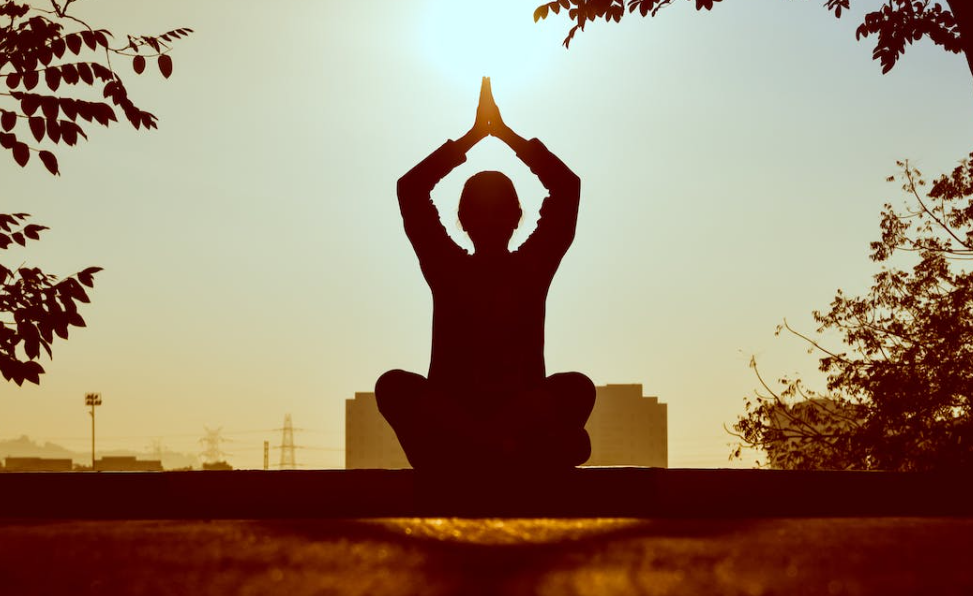Meditation Vs Hypnosis
Learn the differences between meditation and hypnosis and how they both provide a sense of well-being.

Selfpause Affirmation App
Download the app to get 1,000’s of affirmation meditations and everything you need to write, record and listen to your own.
Whether you are seeking to improve your life or make changes to your habits, meditation and hypnosis both have their merits. Both offer you a sense of well-being and allow you to reflect on who you are. However, while meditation aims to increase the quality of your life, hypnosis seeks to help you implement new ways of being.
hypnosis

Hypnosis is a method of focusing one’s attention and achieving deep relaxation. It is often compared to a dream-like state. Many people report experiencing a sense of deep relaxation, well-being, and safety while in hypnosis. Self-hypnosis is also an effective way to achieve hypnosis. During meditation, the individual can give special attention to each part of the body, including breathing deeply.
Meditation focuses on being present in the present moment, while hypnosis uses visualisation techniques to induce a new response. The two techniques are similar but very different. Both can be beneficial to different people. Meditation is a great way to gain insight into yourself and the world around you, while hypnosis is a powerful tool for implementing new ways of being.
Hypnosis is useful for accomplishing small goals. However, unlike meditation, it won’t quiet the human mind, which generates up to 50,000 thoughts per day. While hypnosis can change the way you think, meditation can help you achieve a true state of mindful awareness.
Meditation can improve physical health and spirituality. It can also help you stop smoking or release self-sabotaging thoughts. Hypnosis requires a time commitment and a willingness to explore the mind. Those who are not able to commit to long hours can still benefit from a meditation app like Primed Mind.
While meditation is a more difficult technique, the benefits of hypnosis are very similar. Both can help you achieve goals like quitting unhealthy habits and losing weight. Meditation involves the use of mindfulness and concentration techniques. Hypnosis helps you focus on one thing at a time, while meditation helps you improve many things at once.
Meditation and hypnosis both use the same areas of the brain to achieve their desired results. Meditation helps you relax, while hypnosis enables you to access the subconscious mind and use its resources. Both methods use suggestions to achieve a goal, which may be beneficial. Meditation can be more efficient for changing habits and improving general health. Meditation also allows you to gain valuable insights.
If you suffer from a mental disturbance, meditation is a better choice. It is possible to achieve a deep relaxation state in under 10 minutes through hypnosis. During hypnosis, a hypnotist helps you calm down before starting meditation. Meditation also requires more practice, so hypnosis is a more practical option for beginners.
Generally, meditation involves going to a calm place by yourself. Hypnosis, however, requires a hypnotist to be present with the person. However, women often feel uncomfortable going alone, which is against their feminine nature. However, they felt very comfortable with the hypnotist, who was a master, and a lover.
In Christianity, there is no clear distinction between meditation and hypnosis. While both methods use the same techniques, they are very different. In Christianity, the word witch refers to a wise woman. In the medieval period, Christianity equated wise women with the devil. As a result, the practice of meditation was suppressed.
meditation

Meditation and hypnosis both use the power of imagination and focus to help the subject create lasting change. While hypnosis involves a relationship with a hypnotist, meditation is an individual process requiring a person to be fully present. Both techniques are effective at lowering blood pressure and relieving stress. During meditation, deep breathing helps the body to eliminate stress by increasing oxygen and blood flow.
Although they use different methods, meditation and hypnosis have many similarities. Both require the practitioner to bypass logical thought and to lower inhibitions to reach a relaxed state. While hypnosis involves the development of new beliefs, meditation is a practice of observation and relaxation. Hypnosis also helps people overcome bad habits or improve performance.
While both methods aim to induce an altered state of consciousness, meditation is a spiritual practice and is part of a larger religious or spiritual system. One of the most famous’meditators’ in history was the Buddha. His followers believed that he had achieved enlightenment through meditation.
Meditation also allows us to experience things without changing them. It helps us to give up our personal critique and surrender to nature’s order. When combined with hypnosis, it can help us see things as they are, instead of seeing them as we wish them to be. This is a very comforting aspect of meditation.
In practice, meditation and hypnosis are similar. Both involve relaxation and focus. While meditation is an individual practice, hypnosis is a process that involves two or more individuals. Meditation helps to create a state of mental stillness while hypnosis focuses on changing the subconscious. Hypnosis uses imagery trips and suggestions to rewire our subconscious programming.
Meditation is a practice that can bring about clarity of mind and improve physical health. Self-hypnosis, on the other hand, helps to achieve certain desirable states or overcome specific problems. Self-hypnosis can be beneficial if you want to quit smoking or to overcome a problem. Both practices are effective for many reasons. Meditation can improve your physical health and open up your subconscious mind. Hypnosis can also help you overcome self-sabotaging habits.
While meditation requires concentration and regular practice, hypnosis is more effective if performed by an expert. Both can help you reach enlightenment. Regular meditation can help you overcome mental and physical ailments and help you find meaning in life. It can improve your overall mood and improve your quality of life.
meditative state

Hypnosis is a type of deep relaxation and focus that requires intense concentration and control of the mind, body, and senses. It is often compared to a dream-like state and people who have experienced it often report intense relaxation and feelings of safety and well-being. People who undergo hypnosis may be induced into this state by using a hypnosis technique or they can practice self-hypnosis. During self-hypnosis, the individual pays close attention to every part of their body and breathe deeply.
There are many different types of meditations. Some are used for relaxation and self-reflection, while others are used for changing behavior. In either case, meditation can lead to a spiritual awakening that can transform the course of a person’s life. When a person is in a state of meditation, he or she feels connected to a higher consciousness that surrounds them and gives them a feeling of total well-being. This connection can strengthen one’s faith in intuition and the universe.
Hypnosis and meditation are similar in the way that they induce a heightened awareness and relaxation. Both techniques are used to achieve specific goals and improve performance. Hypnosis is a powerful tool for changing bad habits and improving performance. There is a lot of confusion surrounding these two techniques.
Hypnosis is a type of therapy that uses hypnosis techniques to help people relax around memories of the past. It is also used to help people prepare for the future. Meditation helps people become more present-focused, and hypnosis helps people relax around memories of the past. Hypnosis uses a method of hypnosis that involves an individual’s hypnotic suggestibility.
A state of hypnosis is similar to daydreaming, in that the person is able to withdraw their minds into a peaceful place. Everyone has experienced a calming daydream at some point. When their subconscious mind needs to focus, they may put the daydream aside in order to solve a problem, deal with anxiety, or prioritise a task.
Although there are some differences between hypnosis and meditation, they are closely related. In both cases, the patient and the therapist interact with one another to achieve hypnotic states. The difference is that meditation involves a first-person perspective, while hypnosis relies on the third-person observer.
The difference between a meditative state and a hypnotic state is the goal of a hypnotic session. While the former is a more relaxed state, self-hypnosis is often designed to achieve a specific goal. It may help people overcome bad habits, quit smoking, reframe old memories, or develop a better self-image. It can also be used to overcome insomnia and anxiety.
Meditation was introduced to the western world later than hypnosis and is largely unharmed by the misconceptions that surround it. It is also more scientifically based, and has undergone more medical research than hypnosis. Many studies have shown the benefits of meditation for the mind and body, and magnetic resonance brain scans of meditation subjects have shown changes in their brain structure.
Our Top FAQ's
The main difference between meditation and hypnosis is that meditation is a self-directed practice that involves focusing the mind and bringing awareness to the present moment, while hypnosis is a state of altered consciousness in which a person becomes highly suggestible and open to suggestion from another person.
The effectiveness of meditation and hypnosis can vary depending on the individual and the specific goals they are trying to achieve. Some people may find meditation to be more effective for reducing stress and achieving relaxation, while others may find hypnosis to be more effective for addressing specific mental health issues or achieving specific goals.
Meditation and hypnosis can potentially be used together to enhance their individual effects. For example, a person may use meditation to calm the mind and achieve a state of relaxation, and then use hypnosis to focus on a specific goal or intention.
There are generally no significant risks associated with practicing meditation or hypnosis, as long as they are performed by a trained and experienced professional. However, it is important to approach both practices with caution and to consult with a healthcare provider if you have any concerns.
Meditation may be more appropriate for individuals who are looking to improve overall mental health and well-being, while hypnosis may be more appropriate for individuals who are looking to address specific issues or concerns, such as anxiety, phobias, or habits. However, the appropriateness of each method can vary depending on the individual and their specific needs and goals.
